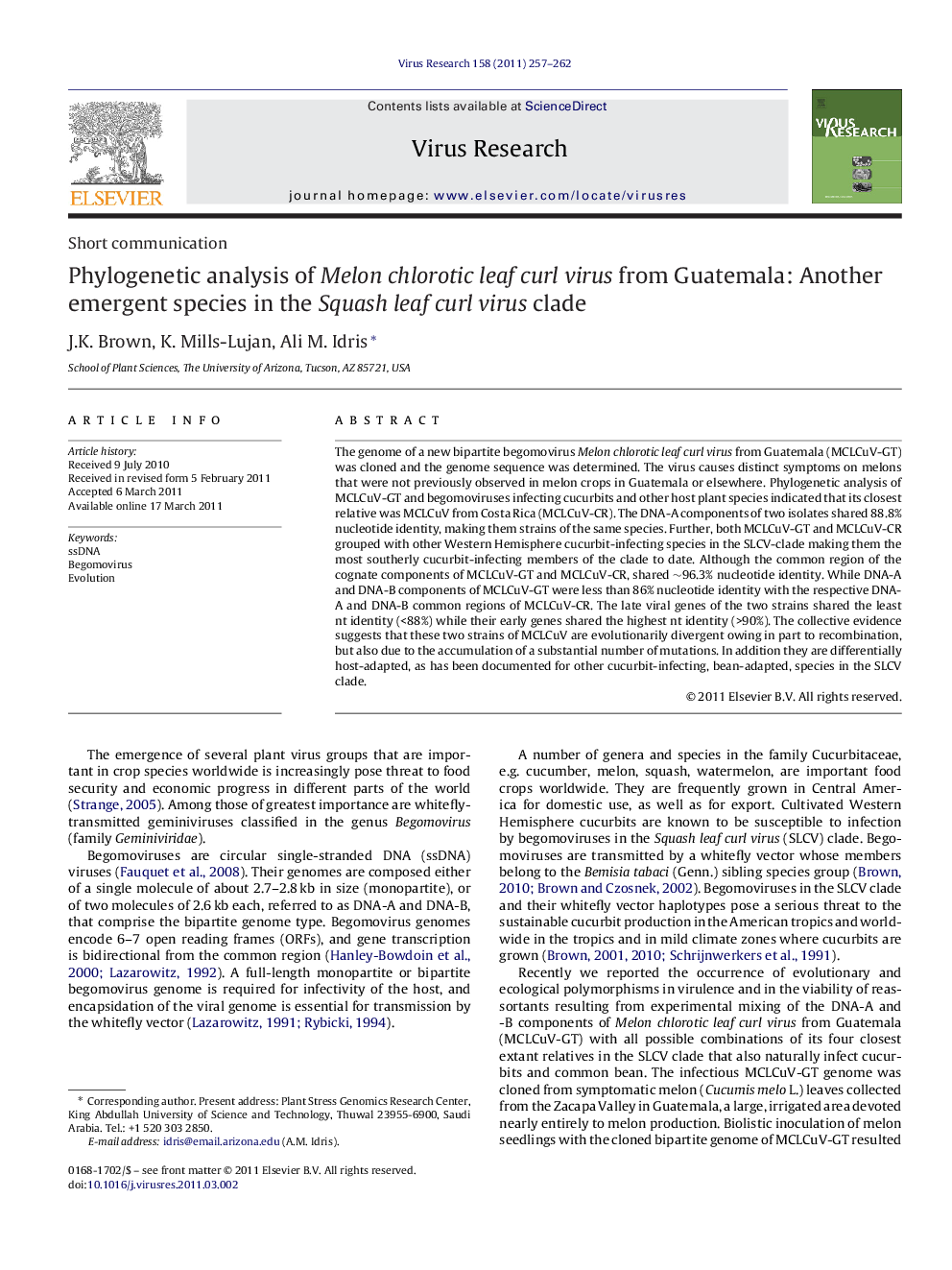| Article ID | Journal | Published Year | Pages | File Type |
|---|---|---|---|---|
| 3429014 | Virus Research | 2011 | 6 Pages |
The genome of a new bipartite begomovirus Melon chlorotic leaf curl virus from Guatemala (MCLCuV-GT) was cloned and the genome sequence was determined. The virus causes distinct symptoms on melons that were not previously observed in melon crops in Guatemala or elsewhere. Phylogenetic analysis of MCLCuV-GT and begomoviruses infecting cucurbits and other host plant species indicated that its closest relative was MCLCuV from Costa Rica (MCLCuV-CR). The DNA-A components of two isolates shared 88.8% nucleotide identity, making them strains of the same species. Further, both MCLCuV-GT and MCLCuV-CR grouped with other Western Hemisphere cucurbit-infecting species in the SLCV-clade making them the most southerly cucurbit-infecting members of the clade to date. Although the common region of the cognate components of MCLCuV-GT and MCLCuV-CR, shared ∼96.3% nucleotide identity. While DNA-A and DNA-B components of MCLCuV-GT were less than 86% nucleotide identity with the respective DNA-A and DNA-B common regions of MCLCuV-CR. The late viral genes of the two strains shared the least nt identity (<88%) while their early genes shared the highest nt identity (>90%). The collective evidence suggests that these two strains of MCLCuV are evolutionarily divergent owing in part to recombination, but also due to the accumulation of a substantial number of mutations. In addition they are differentially host-adapted, as has been documented for other cucurbit-infecting, bean-adapted, species in the SLCV clade.
